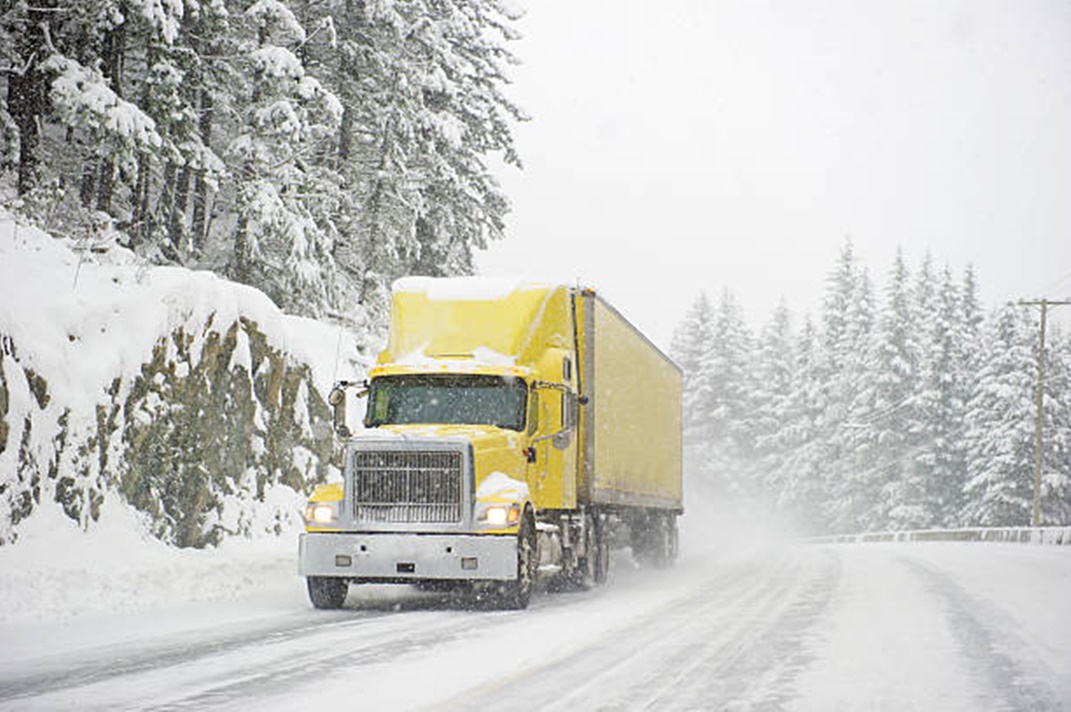In the United Kingdom, winter can seem never-ending, lasting well beyond the festive season. This prolonged cold and wet period brings additional risks and worries for all drivers. However, HGV drivers face particularly substantial dangers during this time.
As an HGV driver, being knowledgeable about handling winter roads involves effectively navigating various challenges like black ice and fog in a larger vehicle compared to a regular car. Although your HGV licensing course will assist you in preparing for road safety, there are some additional measures you can adopt to ensure you remain on the right path.
Consider exploring and finding HGV courses specifically tailored to winter driving techniques and strategies to enhance your skills and confidence in challenging road conditions.
Stay Updated on Current Weather Conditions
It is essential for HGV drivers to stay informed about the weather conditions. Prior to starting their drive, they should make a habit of checking the forecast each morning to be prepared for what lies ahead. Utilising smartphone applications to assess if there are any major weather-related complications resulting in road closures or blockages would also be beneficial. This enables drivers to adjust their routes accordingly.
In the wintertime, various weather conditions can impact your driving, but certain issues hold more importance than others. For example, it is crucial to be vigilant of the following:
- In situations where there is thin fog, it may be feasible to proceed cautiously using bright lights and reducing your speed. However, when the fog becomes denser, it is advisable to pause your journey and wait for visibility to improve.
- In terms of alerting people to the potential risks associated with heavy rain, it is crucial to understand its hazardous effects on road conditions, such as making vehicles sway off course and reducing visibility.
- When traveling, it is advisable to steer clear of bridges that have not undergone gritting treatment. Additionally, exercise caution when approaching any elevated structure.
- Black ice, despite being hard to detect, poses a significant risk as it can make your vehicle slide and veer off course.
Examine your Vehicle
As an informed individual, it is essential to understand that observing the weather is merely the initial stage in getting ready for your HGV trip. Typically, it is advisable to regularly conduct inspections on your HGV vehicle to ensure its proper functioning. Additionally, your employer may schedule periodic inspections by authorised personnel.
Before you start driving during the winter season, it is advisable to perform an additional inspection, thoroughly examining various components of your truck. It is worth considering the following aspects, for instance:
- The functionality and efficacy of your lighting system
- Your vehicle’s windshield wipers and their performance in snowy conditions.
- Are the fluid levels adequately filled?
- Your defrosters and heating elements play a crucial role in your
- The functionality and recharging mechanism of batteries
- The quantity of fuel you have (having more is preferable to having less)
- Proper tire balance, wear, and pressure
Before you start driving, it is essential to ensure that you review your employer’s checklist of important items to be examined for each journey. It is important to double-check this list before getting behind the wheel. If you have any concerns, make sure to raise them with your boss.
Prepare for Everything
Preparing for all situations can be challenging, especially for HGV drivers who may face various journeys and encounter different obstacles during the winter season. However, it is important to prioritise readiness by anticipating and addressing potential hazards.
To begin, assemble an emergency kit. The specific items included may vary based on your specific circumstances, but they could encompass:
- A tool for removing ice and a container of de-icing solution
- Essential items for snowy and icy conditions e.g. sand and a shovel
- Sunglasses to reduce glare from the road
- Adequate winter attire and extra covers
- A thermos containing a warm drink, such as tea or coffee
- Sufficient quantities of additional food and water
- Additional fuel can be carried in case there is a need to deviate from the usual route
- A high-viz jacket
- Jumper cables
- A torch
It is advisable to have a first aid kit in your heavy goods vehicle (HGV) at all times, regardless of the season. You never know what situations you may come across while driving.
Enhance Your Driving Habits
A knowledgeable HGV driver understands the significance of driving cautiously at all times. Particularly during the winter season, it becomes even more crucial to exercise caution, as any sudden or sharp maneuvers can lead to a loss of control. It is essential to drive at a slower pace and exhibit increased caution when handling the vehicle during winter. It is preferable to reach your destination with a delay rather than not reaching it at all.
Remember to:
- To minimise the risk of accidents, it is crucial for drivers to decrease their speed when driving on a slippery road. This is especially important for HGV drivers who handle intricate vehicles.
- Create a larger gap between your vehicle and others to enhance your ability to respond quickly to the vehicles in your vicinity. Consider extending the stopping distance up to ten times the usual amount if necessary.
- To ensure consistency, it is important to maintain a steady pace without excessive breaks. It is also crucial to take regular breaks to manage fatigue effectively.
Prioritise Safety at All Times
Ultimately, it may appear to be a straightforward recommendation, yet it is one that must not be disregarded. Once you have obtained your HGV certification and secured a lucrative position, the temptation to drive swiftly and proficiently to destinations (while abiding by the law) in order to showcase your value as a valuable hire can be overpowering. Nevertheless, it is crucial to acknowledge that this approach can be perilous.
During the winter season, it is important to prioritise safety rather than competing with colleagues or reaching destinations ahead of time. The main focus should be on ensuring personal safety as well as the safety of others on the road.
When faced with harsh weather conditions, it is advisable to reduce your speed and begin searching for a secure location to pull over. In the event that continuing to drive becomes perilous, it is important to be ready to communicate with your supervisor, informing them of the situation and the delay in your schedule.
Are You Prepared for Winter Driving Conditions?
Even though the roads in the UK can be unpredictable at times, being an HGV driver can be a highly fulfilling and captivating profession. By understanding how to ensure your safety and stability during winter, you will be well-equipped to excel in your new role as an HGV driver.

